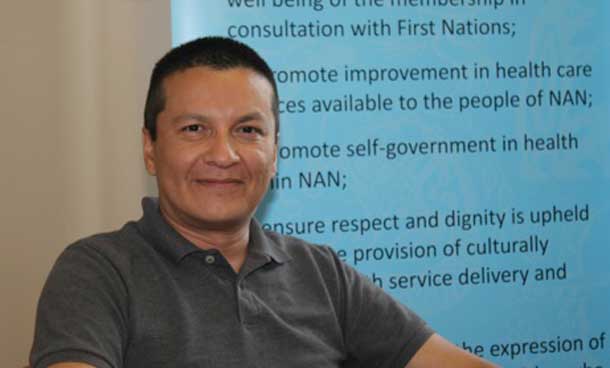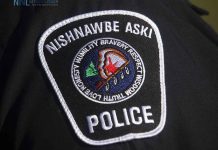

Partnerships with Aboriginal Groups Help Improve Healthcare
THUNDER BAY – Healthbeat – “Through initiatives such as establishing an Aboriginal Advisory Committee, Thunder Bay Regional Health Sciences Centre (TBRHSC) is demonstrating its willingness to address Aboriginal health issues”, says Jason Beardy.
[sws_pullquote_right]There are no easy solutions, but it’s good to see that TBRHSC is taking the initiative and developing that partnership, not only with the Aboriginal Advisory Committee, but with the larger Aboriginal community in Thunder Bay – Jason Beardy [/sws_pullquote_right] Beardy is one of the members of the Aboriginal Advisory Committee (ACC) which advises on how best to meet the healthcare and cultural needs of Aboriginal patients and their families.
As Director of Health Policy & Planning and Special Reports for the Nishnawbe Aski-Nation (NAN), he brings with him the perspective of 49 communities in Northern Ontario between the Manitoba and Quebec borders. His department communicates with and lobbies the federal and provincial governments to bring about improvements in health. NAN communities share many common concerns, including diabetes and, since 2009, a prescription drug abuse epidemic.
Beardy started serving his community from an early age. At 21, he took on the responsibilities of band councillor in Muskrat Dam, an Oji-Cree First Nation, north of Sioux Lookout, with a population of approximately 300. One of the youngest to ever hold the position, Beardy served for seven years before becoming the community’s Deputy Chief and serving another eight years.
In 2006, when his daughter needed to leave the community to attend high school, the single father had some natural misgivings about sending her away alone to the city. Since 2000, seven Aboriginal teens have died while pursuing high school studies in Thunder Bay. “I was hearing stories, so I decided to move my son and daughter to Thunder Bay.”
He took the opportunity to enrol in Lakehead University’s Honours Bachelor of Political Science program and in 2010, he and his daughter both graduated, she with a secondary school diploma and he with a university degree.
Shortly after graduating, Beardy began working for NAN.
“Jason understands the challenges remote communities face in accessing healthcare and he brings those issues forward to the Committee,” says Carmen Blais, Aboriginal Engagement Lead and Patient Advocate. “He is well-known and respected in Northern Ontario as a dedicated leader and he has been instrumental in helping develop cultural awareness education for our staff, which will ultimately lead to culturally safer care for all patients and families.”
In order to develop cultural sensitivity and better address the needs of Aboriginal patients and families, online training modules have been made available to all TBRHSC staff on themes such as traditional healing, sacred medicines, sweat lodges and feasts. Elders have also been invited to speak to staff about Aboriginal history and culture.
“Staff don’t necessarily have to know and understand First Nations culture and perspectives, but at least recognize and respect that it is different, as any other ethnic group is different,” says Beardy.
“First Nations have gone through a lot in recent history, like residential schools and the ‘60s scoop. Traumas such as these have had a role in addictions and other social challenges. There are no easy solutions, but it’s good to see that TBRHSC is taking the initiative and developing that partnership, not only with the Aboriginal Advisory Committee, but with the larger Aboriginal community in Thunder Bay.”












